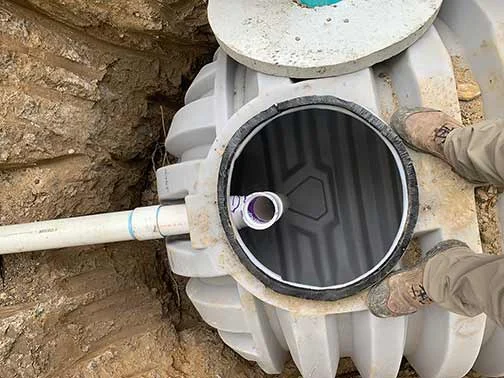
If your home’s drainage runs on a septic system, your worst plumbing nightmare is probably a septic tank failure in your house, says Oklahoma Red Door Norman Management. A failed septic tank can lead to nasty plumbing and sanitary issues in your home.
But septic tank malfunctions don’t just happen; septic systems are designed to be resilient and withstand a reasonable amount of abuse. So, before a septic tank fails, there would have been a series of warning signs of the problem.
Septic tank failure only happens when these warning signs are ignored. You can prevent septic system failure in your home if you know the warning signs of septic tank damage and the right steps to fix the problem.
8 warning signs of septic tank damage
- Bad odors inside your home
A broken septic tank will often emit a rotten egg-like odor. This smell comes from a buildup of sewage gases in the system due to ventilation issues and clogs. Sometimes, these odors will happen intermittently.
- Strange noises from your toilet
Bubbling or gurgling noises from your toilet or floor drains signify that the pipes in your septic system are blocked. The trapped air inside the drainpipes will create these strange noises as they escape through the toilet.
- Slow drains
Slow drains result from clogged drainpipes or problems in your septic system. If multiple drains in your home are slow at the same time, it is possible that these drains are being affected by a problem in the septic tank.
- Sewage backup
Unresolved slow drains in the home will ultimately result in backups inside the house. Wastewater in your drain lines can reverse flow and enter your home if blockages prevent the water from flowing through the septic system.
- High level of nitrates in well water
If tests reveal high levels of nitrates and bacteria in your well water, your septic tank could be leaking wastewater into the ground. A failed septic system will release partially treated effluent into the ground.
- Changing water level in the toilet
Toilets on lower floors may experience problems if the septic tank/system is malfunctioning. Water levels in toilet bowls may rise and fall erratically, and after flushing, water in the toilet will not return to the original level.
- Standing water in the drain field
A broken septic tank and blocked pipes in the leach field will cause wastewater to pool on the surface of your drain field. This will often be accompanied by a strong smell of raw sewage.
- Unusually lush grass
Before wastewater starts to visibly pool on your leach field, you may notice that the grass in the area is overly green. If the grass in your drain field is too green, a leaky septic system may be feeding the plants secretly.
What to do if your septic tank needs repair
Depending on the type of problem and the extent of damage, your septic tank will need to be repaired or replaced. Replacing a septic tank is costly, and it is normal to want to avoid this option. Keep in mind that makeshift solutions often end up costing more.
Here are a few things to look at when trying to choose the right solution for your septic tank problems:
- If the problem is limited to standing water or sewage odors between the tank and the drain field, you may be dealing with nothing more than a broken pipe.
- If the septic tank has minor cracks, it may be possible to repair it by patching up the leaking areas with sealant or epoxy.
- If the tank is showing evidence of structural damage, patching it up will not work. The only workable solution is to replace the tank.
To make sure you are applying the right solutions to the right problems:
- Contact a professional
Licensed septic systems professionals have the tools and know-how to properly assess your septic tank, determine the problems, and recommend the best solutions. For the best results, get a second or even third opinion.
- Evaluate your repair options
If you only have to repair the septic tank, your technician may also need to do pipe repair or replacement, as well as baffle repair. It is also important to add the cost of pumping the septic tank to your budget.
- Contact your local health department
However, if the septic system needs major work, you may want to contact your local health department. In addition to helping find the best professionals, they may be able to help you get affordable financing for the work.
Hence, after you fix your home’s septic tank problems, you want to take steps to prevent a recurrence of the problem. You can do this by following a professional septic tank maintenance plan specifically created for your home by an experienced professional.

